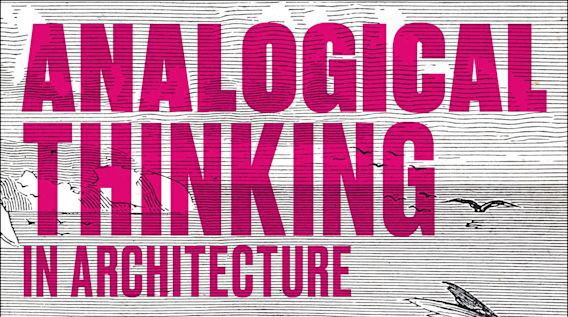
Analogical Thinking in Architecture. Connecting Design and Theory in the Built Environment (New York: Bloomsbury Publishing, 2023), a new book by Jean-Pierre Chupin
This book provides an in-depth exploration of the rich and persistent use of analogical thinking in the built environment. Comparing views on the role of analogies and metaphors by prominent voices in architecture and related disciplines from the 17th century to the present, the book shows how the “analogical world of the project” is revealed as a wide-open field of creative and cognitive interactions.
Description
This book provides an in-depth exploration of the rich and persistent use of analogical thinking in the built environment. Since the turn of the 21st century, “design thinking” has permeated many fields outside of the design disciplines, used whenever disciplinary boundaries need to be transcended in order to think “outside the box”. This book argues that these qualities have long been supported by “analogical thinking”—an agile way of reasoning in which we think the unknown through the familiar.
The book is organized into four case studies: the first reviews analogical models that have been at the heart of design thinking representations from the 1960s to the present day; the second investigates the staying power of biological analogies; the third explores the paradoxical imaginary of “analogous cities” as a means of integrating contemporary architecture with heritage contexts; while the fourth unpacks the critical and theoretical potential of linguistic metaphors and visual comparisons in architectural discourse.
Comparing views on the role of analogies and metaphors by prominent voices in architecture and related disciplines from the 17th century to the present, the book shows how the “analogical world of the project” is revealed as a wide-open field of creative and cognitive interactions. Showing how analogy has the power to reconcile design and theory, it is a must-read for both designers and theorists alike.
Author
Jean-Pierre Chupin is a professor at the Université de Montréal School of Architecture, where he holds the Canada Research Chair in Architecture, Competitions and Mediations of Excellence.
Reviews
Analogical Thinking in Architecture is a careful and timely study of analogy as a powerful tool for connecting design and theory in the built environment. Chupin makes a compelling argument about the potential of analogical thinking to renew the epistemological horizons of architectural theory and to contribute to a better understanding of contemporary design practice. Eloquently written and filled with insightful examples, it is a must-read for every architecture student, design educator and practitioner.
Albena Yaneva, University of Manchester, UK
One of the foremost specialists of analogy, this fundamental dimension of architectural thinking, gives us an expanded English version of his seminal contribution to the study of a topic of interest both to theorists and practitioners. Indeed, analogy is key to the understanding of architectural creativity.
Antoine Picon, Harvard Graduate School of Design, USA
In four chapters, Jean-Pierre Chupin takes us on an intellectual and sensory journey, reviewing key moments in Western architectural theory and history and illuminating modes of thought that remain little explored in the discipline. Analogical Thinking in Architecture is a must-read for scholars and practitioners alike.
Dieter Dietz, EPFL Lausanne, Switzerland
